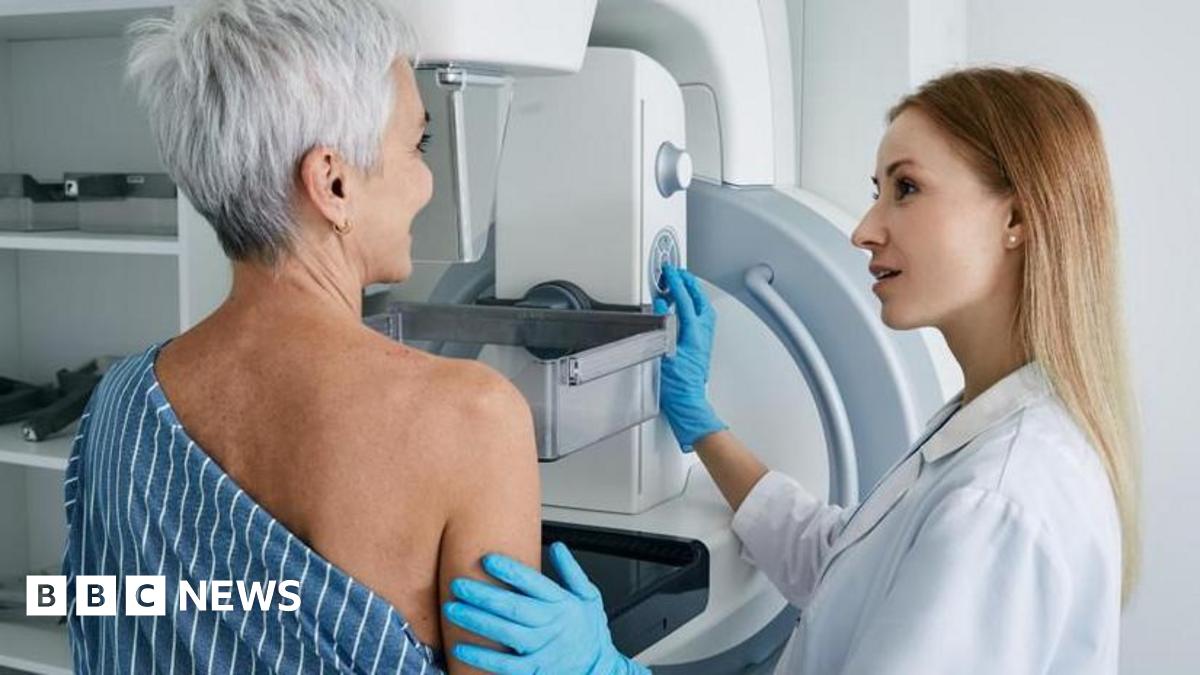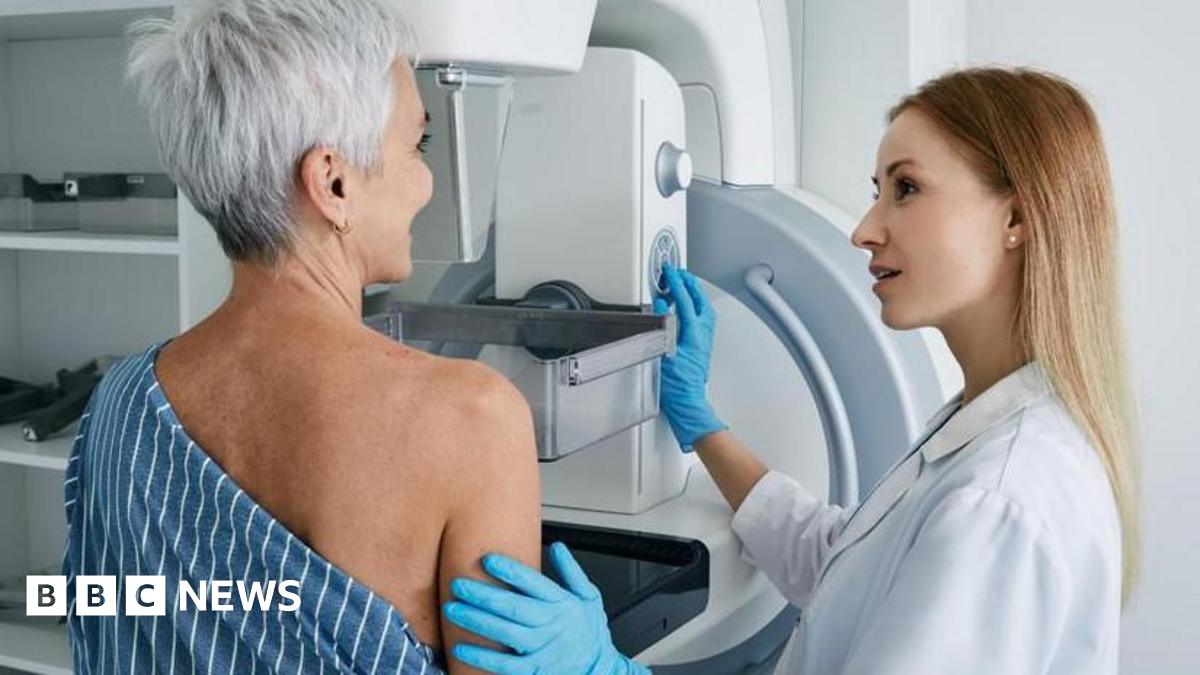Improved Breast Cancer Detection: The Case For Additional NHS Scans For Women With Dense Breasts

Welcome to your ultimate source for breaking news, trending updates, and in-depth stories from around the world. Whether it's politics, technology, entertainment, sports, or lifestyle, we bring you real-time updates that keep you informed and ahead of the curve.
Our team works tirelessly to ensure you never miss a moment. From the latest developments in global events to the most talked-about topics on social media, our news platform is designed to deliver accurate and timely information, all in one place.
Stay in the know and join thousands of readers who trust us for reliable, up-to-date content. Explore our expertly curated articles and dive deeper into the stories that matter to you. Visit Best Website now and be part of the conversation. Don't miss out on the headlines that shape our world!
Table of Contents
Improved Breast Cancer Detection: The Case for Additional NHS Scans for Women with Dense Breasts
Introduction: Breast cancer is the most common cancer in the UK, affecting one in eight women. Early detection significantly improves survival rates, making preventative measures and advanced screening crucial. However, a significant challenge remains: dense breast tissue. This article explores the growing argument for additional NHS scans for women with dense breasts, examining the science behind the issue and the potential impact on early diagnosis and saving lives.
Understanding Dense Breast Tissue:
Many women have dense breast tissue, a naturally occurring condition where the breast is composed largely of glandular and fibrous tissue, rather than fatty tissue. This density makes it harder for mammograms – the standard NHS breast screening tool – to detect cancerous tumors. This is because dense tissue appears white on a mammogram, obscuring the appearance of tumors, which also appear white. This can lead to missed diagnoses, potentially delaying crucial treatment.
The Limitations of Mammography in Dense Breasts:
Mammography remains a vital tool in breast cancer screening, but its limitations in detecting cancers within dense breasts are well-documented. Studies consistently show a higher incidence of interval cancers (cancers detected between screening mammograms) in women with dense breasts. This highlights the need for supplemental screening methods.
The Case for Supplemental Screening:
Several organizations, including leading breast cancer charities, are advocating for increased access to supplemental screening for women with dense breasts. This usually involves additional imaging techniques such as:
- Ultrasound: Ultrasound uses sound waves to create images of the breast tissue. It's particularly effective in detecting tumors in dense breasts because it can differentiate between solid masses and cystic lesions.
- MRI (Magnetic Resonance Imaging): MRI provides highly detailed images of the breast. While more expensive and less readily available than ultrasound, it offers exceptional sensitivity in detecting breast cancer in dense breasts.
The NHS Perspective and Current Guidelines:
Currently, the NHS breast screening programme focuses primarily on mammography. While awareness of the challenges posed by dense breast tissue is growing, widespread implementation of supplemental screening remains a complex issue due to cost and resource allocation. However, there's a growing movement to change these guidelines, driven by patient advocacy and advancements in imaging technology.
Advocacy and Patient Rights:
Many women are actively campaigning for their right to access additional scans, particularly those with a family history of breast cancer or other risk factors. Increased awareness and lobbying efforts are playing a significant role in pushing for policy changes.
What You Can Do:
- Discuss your breast density with your doctor: If you're concerned about your breast density, discuss it openly with your GP or breast care specialist.
- Know your family history: Understanding your family history of breast cancer is vital for risk assessment.
- Stay informed: Keep up-to-date with advancements in breast cancer screening and advocacy efforts.
Conclusion:
The case for additional NHS scans for women with dense breasts is compelling. The evidence clearly demonstrates the limitations of mammography in these cases and the potential for improved early detection through supplemental imaging. While challenges remain regarding resource allocation, the ongoing advocacy and increasing awareness are paving the way for significant improvements in breast cancer screening and potentially saving countless lives. Further research and policy changes are crucial to ensure all women have access to the most effective screening methods available. This will lead to earlier diagnoses, improved treatment outcomes, and ultimately, a better chance of survival for women affected by this devastating disease.

Thank you for visiting our website, your trusted source for the latest updates and in-depth coverage on Improved Breast Cancer Detection: The Case For Additional NHS Scans For Women With Dense Breasts. We're committed to keeping you informed with timely and accurate information to meet your curiosity and needs.
If you have any questions, suggestions, or feedback, we'd love to hear from you. Your insights are valuable to us and help us improve to serve you better. Feel free to reach out through our contact page.
Don't forget to bookmark our website and check back regularly for the latest headlines and trending topics. See you next time, and thank you for being part of our growing community!
Featured Posts
-
 South Park Streaming Rights Paramount Deal And Hbo Max Uncertainty
May 23, 2025
South Park Streaming Rights Paramount Deal And Hbo Max Uncertainty
May 23, 2025 -
 Boston College Upsets Virginia In Acc Tournament Analyzing The Cavaliers Costly Errors
May 23, 2025
Boston College Upsets Virginia In Acc Tournament Analyzing The Cavaliers Costly Errors
May 23, 2025 -
 Paramount S South Park Censorship Fans React By Buying Physical Copies
May 23, 2025
Paramount S South Park Censorship Fans React By Buying Physical Copies
May 23, 2025 -
 Israeli Embassy Attack In Dc Details Emerge On Staff Injuries And Suspect
May 23, 2025
Israeli Embassy Attack In Dc Details Emerge On Staff Injuries And Suspect
May 23, 2025 -
 What Are We Doing Here A Book Exposes Democratic Concerns Over Bidens Leadership
May 23, 2025
What Are We Doing Here A Book Exposes Democratic Concerns Over Bidens Leadership
May 23, 2025
Latest Posts
-
 Parasite Directors New Film Robert Pattinson Takes The Lead
May 23, 2025
Parasite Directors New Film Robert Pattinson Takes The Lead
May 23, 2025 -
 Women With Dense Breasts Deserve More Cancer Scans A Call To Action For The Nhs
May 23, 2025
Women With Dense Breasts Deserve More Cancer Scans A Call To Action For The Nhs
May 23, 2025 -
 Ai Technology Gives Melania Trumps Voice To New Audiobook
May 23, 2025
Ai Technology Gives Melania Trumps Voice To New Audiobook
May 23, 2025 -
 Tom Cruise Y Angela Marmol Un Encuentro Viral Con Un Final Sorprendente
May 23, 2025
Tom Cruise Y Angela Marmol Un Encuentro Viral Con Un Final Sorprendente
May 23, 2025 -
 Salivazo A Tom Cruise La Historia De Angela Marmol Que Esta Dando La Vuelta Al Mundo
May 23, 2025
Salivazo A Tom Cruise La Historia De Angela Marmol Que Esta Dando La Vuelta Al Mundo
May 23, 2025
